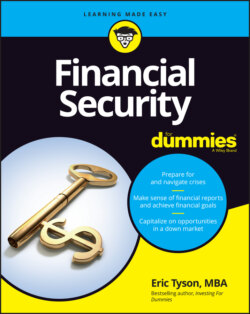Читать книгу Financial Security For Dummies - Eric Tyson - Страница 34
DR. PHIL DECLARED A FINANCIAL 9-1-1 IN LATE 2008
ОглавлениеAt the height of the 2008 financial crisis and plunging stock prices in late 2008, television psychologist Dr. Phil ran an unprecedented show focused on the economy which was entitled “Financial 9-1-1.” If that weren’t enough to scare most everyone, he made numerous dire predictions backed up by various pundits who declared that the U.S. financial system as we knew it would never be the same again. Retirement as a concept would be dead, and non-wealthy folks would be unable to get a mortgage.
The great tragedy in such hype is that this scared people out of the stock market at what turned out to be one of the best buying opportunities in many, many years. U.S. stock prices are up about 790 percent since then and foreign stocks about 360 percent!
Here are the predictions and comments made on this show (after which of each are my comments):
“I question whether retirement as a concept is even going to exist in ten years.” This sure seems like hyperbole to me! We've gotten through challenging times before, and we will again. Most retired folks don't rely on short-term stock market gains to finance their retirement.
“Pension plans are in ‘big trouble’ and plans are going to come up short due to the poor stock market.” Pension plans are well diversified (including in bonds and other investment vehicles) and have weathered challenging stock markets before. A poor return for one year or even several years won't upset diversified pension plans managed for the long term.
“We've got a hurricane here, and everyone's got a hole in the roof.” For sure, some folks were weathering tough times, but many people were not.
“It will be ‘nearly impossible’ to get a mortgage unless you're very wealthy and have excellent credit.” This is utter nonsense. While it was a bit harder to get a mortgage in the aftermath of the crisis, you didn’t have to be wealthy to qualify for a home mortgage.
“Everyone has to ‘stop spending now.’” Making a blanket statement like this without qualifications is absurd. If you lack an adequate emergency reserve (three to six months' worth of living expenses) and are burdened with consumer debt, you should examine your spending and identify ways to reduce it.
As one of America's most widely followed popular psychologists, Dr. Phil reaches millions of people and can influence how they think about important issues. Unfortunately, I found the financial advice on his “Financial 911” program highly disappointing.
What started as “15 Days to Slow the Spread” turned into a multi-months-long — and in some portions of the country, a year-long plus — shutdown, which devastated many businesses that relied upon in-person activity. Especially hard hit were smaller businesses like restaurants, retail stores, and travel-related companies that were not set up to do business digitally.
Business activity fell greatly in March 2020 when the shutdowns began and continued into the spring months. Stock prices fell at an unprecedented rate. The Dow Jones Industrial Average suffered a 38 percent drop over a six-week period after peaking (at 29,568) in early February 2020 and bottoming out (at 18,213) in late March 2020.
The economic carnage happened quickly as well. After reaching a more than 50-year low at 3.5 percent in February 2020, the unemployment rate spiked to 14.8 percent just two months later. And while millions of laid-off workers were able to return to work within a few months, more continued to be laid off as the pain inflicted by the shutdowns continued and deepened in states with long shutdowns and more restrictions.
Handling one’s emotions is always a challenge during a catastrophic event, and the pandemic certainly tested large numbers of people in that regard. In addition to the perceived danger people felt from the possibility of catching the virus and possibly dying, the 24/7 media coverage focused on every last thing that could go or was going wrong. For sure, much of the media made it appear (intentionally or not) that things were worse and more dire than they really were.
Many folks expressed surprise at the stock market quickly bouncing back in the spring and summer of 2020 despite the large number of people still out of work and the many businesses hurting. This episode, like many others, highlighted that the financial markets are always forward-looking. So, while many folks were still out of work and the virus was still spreading and killing, the economy was on the mend and expected to continue to improve. The development of therapeutics to treat the virus and the rapid development and approval of effective vaccines led stocks to hit new all-time highs in late 2020, less than a year after the shutdowns began.
Hopefully, time and effort will be taken to examine what measures were and were not effective so that in a future pandemic, we won’t make as many mistakes.
